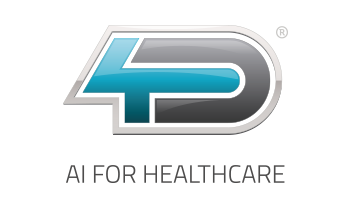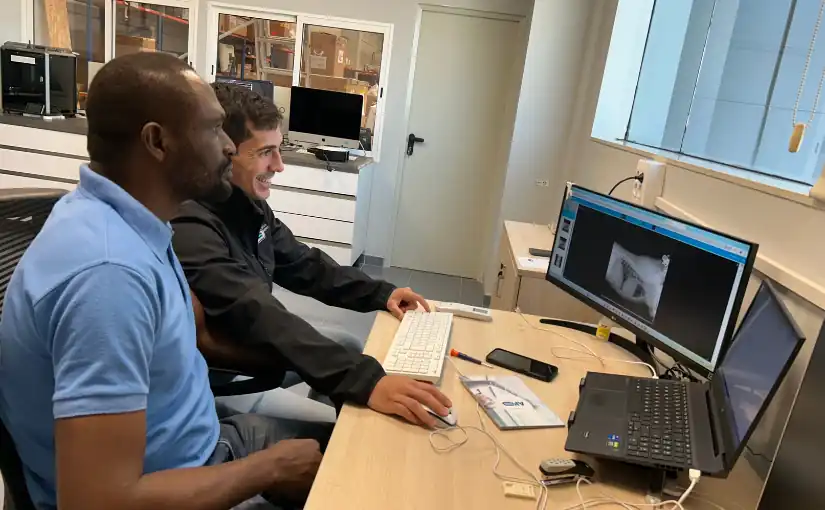In the area of Diagnostic Imaging, technology plays a fundamental role in improving accuracy and efficiency in medical diagnosis. From X-ray machines, computed tomography (CT) and magnetic resonance imaging (MRI) equipment to ultrasound scanners and C-arms, the technology is playing a key role in improving the accuracy and efficiency of medical diagnostics. investment in innovation and quality medical equipment is a key aspect.
At the same time, in order to provide quality health care, it is essential to provide a training complete health care personnel with the technical knowledge necessary for the correct use of Diagnostic Imaging equipment.. With this objective in mind, 4D Médica has initiated a collaboration with Monkole Hospital in the Congo.
The Monkole Hospital Center is located in Mont-Ngafula, a semi-urban area located south-west of Kinshasa, in the capital of the Democratic Republic of Congo. Through the Friends of Monkole Foundationan entity that collaborates with the hospital to promote the health service, we provide various medical equipment and specific training to healthcare personnelThe use of medical devices as well as the software installed.
Because we believe in the importance of cooperate and share technical knowledge where it is most needed. Especially in places like Congo, where resources are limited and the impact of technology can make a difference, helping to save lives.
Training of Monkole Hospital's technical staff in Diagnostic Imaging
Medical technology and innovation are constantly evolving. Every year new models of equipment are incorporated, improvements in imaging algorithms, integration with AI software and artificial intelligence systems, as well as new clinical and technical functionalities. For this reason, the training of technical personnel cannot be static and limited to initial training, but rather requires a ongoing training to improve the use of medical equipment and optimize technological resources in medical centers, clinics and hospitals.
To this end, in the collaboration with Monkole HospitalIn addition, we provided various medical imaging equipment and, in turn, we offered a technical training for its healthcare personnel. This center faces the daily challenge of keeping its systems operational without always having immediate technical support. Therefore, this is an initiative that not only seeks to improve the efficiency and durability of its diagnostic systems, but also to fostering local technical autonomy, This allows the hospital's own professionals to intervene more safely and quickly in the event of basic incidents. An action that, without a doubt, has a direct impact on the quality of health care offered to the population.
Monkole Hospital's technical staff visits 4D Médica headquarters
Healthcare technicians in charge of medical imaging devices play an essential role that goes beyond the basic operation of the equipment. As part of our efforts to provide training and technical expertise, we receive at the headquarters of 4D Medical to a health professional who is part of the technical team of the Monkole hospital center.. During your stay, our team offered you a comprehensive technical training on the use, basic maintenance and primary care of medical imaging equipment the center's facilities, as well as the installed medical software.
What are the advantages of a technical training in Diagnostic Imaging?
In this context, solid technical training improves healthcare and becomes a strategic factor in optimizing technological resources in a hospital center. In particular, we can highlight the following advantages:
Increased operating efficiency
Technical training enables healthcare professionals to use diagnostic imaging equipment correctly from the outset. This means a reduction in setup, acquisition and image processing times. Trained personnel not only know how to operate the equipment, but also how to choose the appropriate protocols according to each type of study, patient or clinical need. As a result, unnecessary delays and repetitions are minimized, improving the overall performance of the radiology service.
Improved diagnostic quality
A quality medical image is the basis for a good diagnosis.. Technical training provides key knowledge on parameters such as resolution, contrast, dose and patient positioning. A well-trained technician will know how to adjust these elements to to obtain sharper and higher quality images. This reduces errors of interpretation, avoids additional testing and improves the confidence of the medical team in the information it receives.
Prevent failures and breakdowns
One of the less visible, but most important benefits of training is the ability to identify and prevent failures before they become serious failures. Trained technical personnel know how to detect early warning signs, perform basic preventive maintenance tasks and apply restart or calibration protocols. This capability reduces dependence on external technical services and prevents equipment from being out of service for hours or days, affecting patient care.
Increased patient safety
Proper use of imaging equipment reduces risks associated with radiation exposure, dosing errors or poor patient positioning.. A well-trained technician not only protects the patient, but also protects himself and his environment. For example, they know when to use protective barriers, how to minimize the number of exposures needed, and how to act in the event of a technical emergency during a study. Safety is an essential part of the responsible use of medical technology.
Ability to adapt to new technologies
Technology in the field of diagnostic imaging advances rapidlysince the advent of hybrid equipment such as PET-CTto the integration of artificial intelligence (AI) in medical image analysis. Continuous technical training enables personnel not only to adapt quickly to these changes, but also to take full advantage of them. A well-trained team facilitates the incorporation of new devices into the clinical workflow without interruption or error of the company's knowledge.
Increased technical autonomy in resource-constrained contexts
In hospitals in developing countries, access to specialized technical support may be limited or expensive. Training local staff in the basic operation and maintenance of diagnostic equipment is a key measure to ensure that the equipment can be used in a safe and efficient manner. long-term operability. This technical autonomy allows the center to maintain its active services without prolonged interruptions and improve your ability to respond to day-to-day failures.
Professional development of healthcare personnel
For healthcare technicians, training not only involves acquiring skills, but also growing professionally. Learning how to handle advanced technology, resolve technical incidents or collaborate in the implementation of new digital tools. enhances the team's commitment to their work and reinforces their role within the clinical environment.
Conclusion
In an increasingly technological healthcare environment, technical knowledge is as valuable as the use of quality medical equipment.. Technical training in Diagnostic Imaging not only improves the quality of health care, but also allows medical centers and hospitals to be more autonomous, efficient and sustainable. At 4D Médica, we are committed to actions which integrate training, cooperation and sustainability as the axes of a more inclusive medical technologygenerating a real impact on people's lives.


